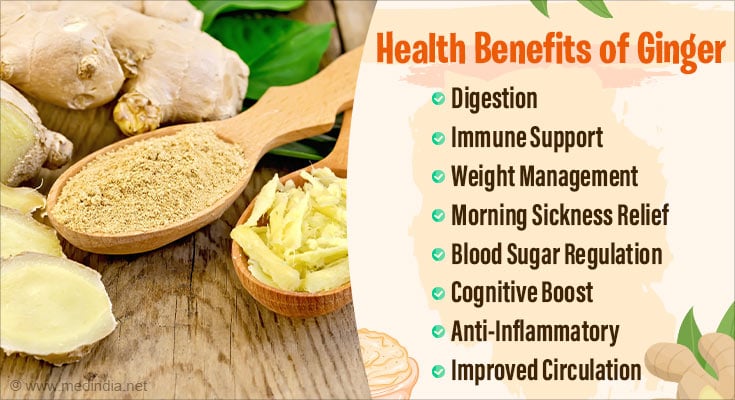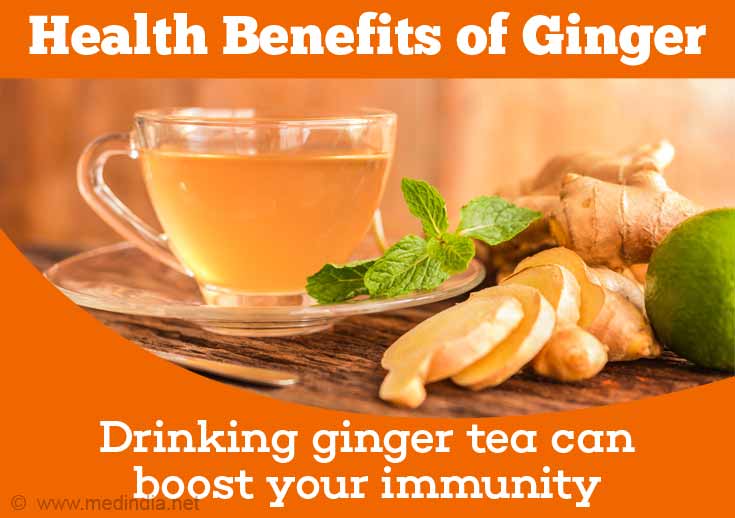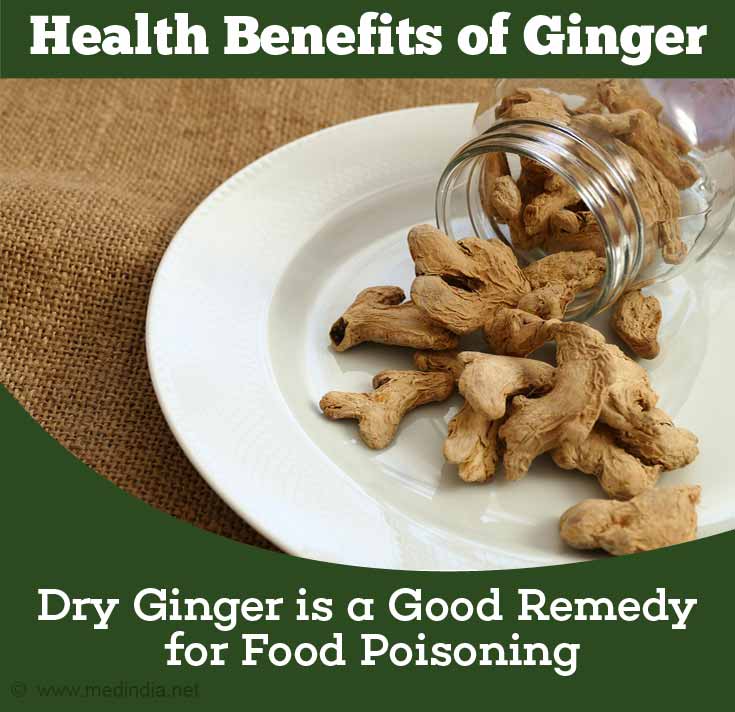- Chapter 7The Amazing and Mighty Ginger - (https://www.ncbi.nlm.nih.gov/books/nbk92775/)
- Ginger: A functional herb - (https://www.researchgate.net/publication/257416254_ginger_a_functional_herb)
- The influence of ginger (Zingiber officinale) on human sperm quality and DNA fragmentation: A double-blind randomized clinical trial - (https://www.ncbi.nlm.nih.gov/pmc/articles/PMC5015668/)
- Anti-Oxidative and Anti-Inflammatory Effects of Ginger in Health and Physical Activity:
Review of Current Evidence - The Amazing and Mighty Ginger - (https://www.ncbi.nlm.nih.gov/books/NBK92775/)
- The effects of ginger intake on weight loss and metabolic profiles among overweight and obese subjects: A systematic review and meta-analysis of randomized controlled trials. - (https://www.ncbi.nlm.nih.gov/pubmed/29393665)
- Anti-Oxidative and Anti-Inflammatory Effects of Ginger in Health and Physical Activity: Review of Current Evidence - (https://www.ncbi.nlm.nih.gov/pmc/articles/PMC3665023/)
- Effects of Ginger on LDL-C, Total Cholesterol and Body Weight - (https://www.longdom.org/open-access/effects-of-ginger-on-ldlc-total-cholesterol-and-body-weight-2471-2663-1000140..pdf)
- Ginger Tea Benefits - (http://www.newhealthguide.org/ginger-tea-benefits.html)
What is Ginger?
Ginger is a popular spice used for enhancing the flavor of cuisines in Asia. In India, it is also used to add flavor to the tea.
Ginger is an underground rhizome that comes from the zingiberaceae family. It is part of herbal medicine or folk remedy. Historically, ginger is also known to ward off evil spirits. The flesh of the ginger can be yellow, white or red, depending upon the variety.
Ginger has some unique and powerful properties that can provide numerous health benefits.

Health Benefits of Ginger
- Aids in Weight loss: Ginger is an amazing food for weight loss. In a study conducted on obese subjects, it was found to help reduce body weight, and waist-hip ratio (1✔ ✔Trusted Source
The effects of ginger intake on weight loss and metabolic profiles among overweight and obese subjects: A systematic review and meta-analysis of randomized controlled trials.
Go to source). Ginger has a potential role in weight management in that it enhances thermogenesis, and reduces feelings of hunger.

- Protects against heart disease: Ginger lowers plasma lipids (LDL-C and total cholesterol), and body weight significantly, eventually preventing the development of coronary artery disease (CAD) in hyperlipidemic patients (2Effects of Ginger on LDL-C, Total Cholesterol and Body Weight
Go to source). It increases HDL cholesterol or good cholesterol. - Increases Sperm Count: Ginger, according to a study, is found to decrease sperm DNA fragmentation (3✔ ✔Trusted Source
The influence of ginger (Zingiber officinale) on human sperm quality and DNA fragmentation: A double-blind randomized clinical trial
Go to source). Thereby, increasing a couples’ chance of delivering a baby in infertility.
- Makes Your Skin Healthy: Ginger has been used in treating skin diseases by applying it topically. It is used in commercial products. It promotes wound healing and is a powerful antiseptic and cleansing agent.
- Treats Nausea: Chewing or sucking ginger could help reduce the sensation of nausea or vomiting due to motion sickness, seasickness, nausea spells, etc (4✔ ✔Trusted Source
The Amazing and Mighty Ginger
Go to source). The results are shown because of ginger’s concentrated flavor. Raw ginger is used as-is for this purpose. It is also used in treating nausea that accompanies pregnancy, chemotherapy, digestive problems, or in dialysis patients.

- Improves Digestion: Are you having a digestion problem? Eat ginger, as it helps in the secretion of intestinal juices, improves the absorption and assimilation of essential nutrients and aids in digestion. It also helps in the break down of proteins in your food and protects your stomach against ulcer by promoting mucus secretion. Ginger is known for its digestive properties.
- Relieves Menstrual Discomfort: Are you suffering from menstrual cramps? Drink ginger tea; it helps ease the pain and relax the muscles. Ginger helps relieve you from dysmenorrhea (the medical term for pain before or during menstruation) and menstrual irregularities.
- Fights Respiratory Problems: A cup of ginger tea can help relieve congestion associated with the common cold by expanding your lungs and loosening up phlegm. Since it is a natural expectorant, it breaks down and removes mucus for quick relief from cold. Ginger may be a therapeutic option in airway disease such as asthma.
- Relieves Stress: Ginger tea has a combination of soothing aroma and healing properties that may help lower your stress and tension. Gingerol in ginger fights bad chemicals that cause psychological and physical stress.
- Prevents Alzheimer’s Disease: 6-gingerol in ginger, exhibits preventive and therapeutic potential for the management of Alzheimer’s disease via augmentation of antioxidant capacity (5✔ ✔Trusted Source
Ginger: A functional herb
Go to source). - Strengthens Immunity: Ginger is anti-bacterial, anti-fungal, and anti-inflammatory (6✔ ✔Trusted Source
Anti-Oxidative and Anti-Inflammatory Effects of Ginger in Health and Physical Activity: Review of Current Evidence
Go to source). Consuming ginger boosts your immunity and helps protect your brain function.

- Treats Cancer: Ginger constituents are regarded as chemopreventive dietary agents. The pungent constituent of ginger 6-Shoagol is shown to cure cancer. It is produced when ginger is dried or cooked. Since it is a dietary compound and not a modern synthetically produced chemical, it is a welcome option for cancer therapy. It also has anti-cancer properties accounting to the presence of beta-ionone, a terpenoid. Terpenoids present in the steam distilled extract of ginger could be used for the treatment of endometrial cancer. Ginger helps improve chemotherapy response.
- Remedy for food poisoning: Ginger is also a remedy for food poisoning or gastroenteritis. Ginger tea soothes the stomach during an episode of food poisoning. It is a natural treatment for diarrhea.

- Helps in Pain Relief: Ginger blocks the pro-inflammatory chemicals (prostaglandins). This alleviates the pain of migraines and arthritis. It is shown that consuming ginger at the first sign of migraine helps in bringing relief. Taking ginger daily lessens pain due to arthritis (osteoarthritis or rheumatoid arthritis).
- Prevents Chronic Kidney Disease: If you are on hemo/peritoneal dialysis, you experience a fairly common symptom – nausea / vomiting / indigestion. Ginger can be used to treat these symptoms. You will be on a salt-restricted diet, and ginger can be used as a spice to add flavor. Five grams of ginger is the allowance for a day. This is about an inch of ginger. It has only about 20mg of potassium, and it is low in phosphorus (2mg in 5g of ginger). Ginger is a kidney-friendly seasoning. Extracts of Ginger have been shown to reduce nephropathy. Research shows ginger reduces the results of diabetes complications such as kidney disease. Antioxidants ward off kidney disease, and ginger is the right foodstuff packed with antioxidants, but ginger should not replace the allowance of fruits and vegetables for the day. Ginger, consumed in reasonable amounts, is healthy for renal patients.
Side-effects of Ginger
Ginger consumption rarely induces side effects such as mild gastrointestinal complications such as heartburn, belching, bruising or flushing, rash, and gastrointestinal discomfort.
- If consumed raw or as candied ginger in excess, it may irritate the oral mucosal linings.
- Drinking ginger tea can lead to heartburn or stomach upset, similar to when you have spicy food.
- Ginger has been shown to reduce blood pressure. This might cause light-headedness and can be mistaken for another problem.
- Some believe that large amounts can raise the risk of miscarriage, so talk to your doctor before taking large amounts if you are pregnant.
How much should you consume?
Allowance for ginger to prevent chances of side-effects is 5g a day. But it’s difficult to measure to say precisely how much you should consume, given the benefits and the availability.
Culinary Use:
‘I use ginger like garlic. I love it for steaming fish and making barbecue sauces or roasted chicken’ ~ Tom Douglas
Ginger can be used in various food products as non-alcoholic ginger ale or beer, ginger tea, dry ginger powder, pills or candied ginger root (traditionally called inji murappa in interior Tamil Nadu) (7Ginger Tea Benefits
Go to source). It can also complement green tea and lemonade. Ginger is used in numerous forms, including fresh, dried, pickled, preserved, crystallized, candied, and powdered or ground. Crushed ginger with honey will help relieve you from cold.
Ginger Recipes
1. Sukku Malli Coffee or Sukku Tea:
Ingredients:
- Coriander Seeds - 2 tbsp
- Black Pepper Corn - 1 tbsp
- Cumin Seeds - 1 tbsp
- Cardamom - 2 nos
- Cloves - 2 nos
- Dry Ginger Powder - 2tbsp
- Ginger Powder - As Needed
To serve: Sweetener of choice - honey, palm sugar or jaggery
Method of Preparation:
- Dry roast all ingredients until cumin seeds and coriander seeds are slightly brown.
- Remove from heat and allow it to cool.
- Add dry ginger powder and grind all ingredients to a smooth powder. Sift using a sieve twice.
- Store in an airtight container.
To serve: Boil water with a teaspoon of powder. Once it comes to boil, remove from heat. Mix in jaggery/honey/sugar as needed.
2. Inji Murappa /Adrak Halwa /Ale Pak /Ginger Candy:
Ingredients:
- Ginger - 125 gms (1/2 cup)
- Jaggery- 200 gms ( 3/4th Cup)
- Wheat Flour - 1/2 Cup
- Ghee - 1 tsp
- Water - As needed
How to make Inji Murappa
- Grind fresh ginger to a smooth paste.
- Mix wheat flour with water.
- Mix water with jaggery till it has dissolved and filter to remove impurities.
- Boil jaggery until thick. Add ground ginger paste and wheat flour paste to jaggery and mix well. When it becomes thick in consistency, add ghee.
- Pour the mixture into a plate. Allow to cool.
- Cut it into small pieces - squares or rectangles and store in an airtight container.
3. Ginger Tea Recipe
Ingredients:
- Sliced ginger - 1/4 cup
- Boiling water - 4 cups
- Honey - 4 tsp
Method of Preparation:
Step 1: Boil water in the teapot and add the sliced ginger. Allow it to boil for 5 minutes.
Step 2: Strain the ginger and retain the tea.
Step 3: Add a teaspoon of honey, stir it well and serve hot.
Home-made Ginger Patch
Here is how to make lung-cleansing ginger and honey wraps!
Ingredients:
- Ginger powder - 1tbsp
- Raw honey - 2 tbsp
- Olive oil - 1 tbsp
- Flour - 2tbsp
- Medical tape (or similar adhesive-based tape)
- Napkins - few
- Gauze wrap
Method of Preparation:
- Mix in honey to flour till smooth liquid texture is formed. Stir continuously and slowly add ginger powder and olive oil. Mix till a liquid consistency is formed.
- Pour a small amount on a napkin and wrap with gauze. Fix this wrap on your chest or back using an adhesive tape around your chest.
- Adults can wear this wrap for a few hours to overnight. Children can use the wrap for two to three hours.
Adults can wear the wrap for a few hours or overnight if desired. Children can comfortably wear the wrap for two to three hours.
Ginger, fresh, Nutritional Facts
| Nutrients | Amount per 100g |
| Proximate Principles and Dietary Fibre | |
| Moisture | 81 % |
| Energy | 55 Kcal |
| Carbohydrate | 8.97 g |
| Protein | 2.22 g |
| Total Fat | 0.85 g |
| Ash | 1.33 g |
| Total Dietary Fibre | 5.36 g |
| Insoluble Dietary Fibre | 4.28 g |
| Soluble Dietary Fibre | 1.08 g |
| Water-soluble Vitamins | |
| Thiamine | 0.04 mg |
| Riboflavin | 0.04 mg |
| Niacin | 0.42 mg |
| Pantothenic Acid | 0.24 mg |
| Total B6 | 0.20 mg |
| Biotin | 1.07 µg |
| Total Folate | 10.82 µg |
| Total Ascorbic Acid | 5.43 mg |
| Fat Soluble Vitamins | |
| Ergocalciferol (D2) | 4.09 µg |
| Alpha-Tocopherol | 0.28 µg |
| Gamma-Tocopherol | 0.47 µg |
| Alpha-tocopherol Equivalent (Vitamin E) | 0.32 µg |
| Phylloquinones (Vitamin K1) | 25.55 µg |
| Carotenoids | |
| Lutein | 15.0 µg |
| Zeaxanthin | 5.97 µg |
| Beta-carotene | 88.85 µg |
| Total Carotenoids | 329 µg |
| Minerals & Trace Elements | |
| Aluminum | 1.71 mg |
| Calcium | 18.88 mg |
| Chromium | 0.013 mg |
| Cobalt | 0.003 mg |
| Copper | 0.13 mg |
| Iron | 1.90 mg |
| Lead | 0.004 mg |
| Lithium | 0.001 mg |
| Magnesium | 54.66 mg |
| Manganese | 3.85 mg |
| Molebdeum | 0.002 mg |
| Nickel | 0.03 mg |
| Phosphorus | 44.36 mg |
| Potassium | 407 mg |
| Sodium | 10.03 mg |
| Zinc | 0.39 mg |
| Starch and Individual Sugars | |
| Total Available CHO | 5.11 g |
| Total Starch | 3.80 g |
| Fructose | 1.0 g |
| Glucose | 0.15 g |
| Sucrose | 0.17 g |
| Total Free Sugars | 1.31 g |
| Fatty Acid Profile | |
| Lauric | 24.21 mg |
| Myristic | 11.05 mg |
| Plamitic | 176 mg |
| Stearic | 19.86 mg |
| Oleic | 67.97 mg |
| Linoleic | 302 mg |
| Alpha-Linolenic | 78.99 mg |
| Total Saturated Fatty Acids | 231 mg |
| Total MonoUnsaturated Fatty Acids | 67.97 mg |
| Total Poly Unsaturated Fatty Acids | 381 mg |
| Amino Acid Profile | |
| Alanine | 4.73 g |
| Arginine | 5.93 g |
| Aspartic Acid | 15.34 g |
| Glutamic Acid | 13.82 g |
| Glycine | 4.91 g |
| Proline | 3.28 g |
| Serine | 4.80 g |
| Tyrosine | 3.78 g |
| Histidine | 1.58 g |
| IsoLeucine | 3.98 g |
| Leucine | 6.49 g |
| Lysine | 2.31 g |
| Methionine | 0.89 g |
| Cystine | 0.82 g |
| Phenylalanine | 4.36 g |
| Threonine | 4.35 g |
| Tryptophan | 0.99 g |
| Valine | 4.35 g |
| Organic Acids | |
| Total Oxalate | 259 mg |
| Soluble Oxalate | 18.26 mg |
| Insoluble Oxalate | 241 mg |
| Citric Acid | 5.95 mg |
| Fumaric Acid | 1.43 mg |
| Succinic Acid | 2.16 mg |
| Polyphenols | |
| Caffeic Acid | 11.84 mg |
| Apigenin-7- Oneohesperidoside | 0.27 mg |
| Luteolin | 4.81 mg |
| Kaempferol | 32.23 mg |
| Total polyphenols | 225 mg |
| Oligosaccharides, Phytosterols, Phytates & Saponins | |
| Phytosterol - Campesterol | 1.34 mg |
| Phytosterol - Stigmasterol | 1.16 mg |
| Phytosterol - β-Sitosterol | 13.29 mg |
| Phytate | 14.50 mg |
Source: Indian Food Composition Table 2017, NIN, ICMR, India - (http://ninindia.org/Downloads/IFCT%202017%20Book.pdf)






